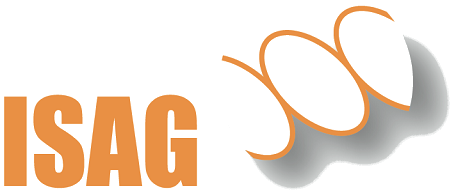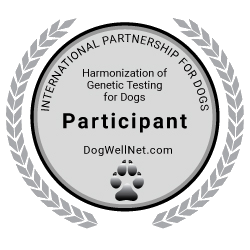X-chromosomal or gonosomal recessive inheritance
Two copies for each trait exist in the genome. For gonosomal coupled traits, an animal derives an X- or Y-chromosome from the father and one of two X-chromosomes from it's mother. The mutated allele resides on the X-chromosome only.
Five possible genotypes exist:
Female animals
1. Genotype xN/xN (homozygous healthy female): This animal does not inherit the mutation and contracts the disease with very low probability. The animal will never pass a mutated allele to it's offspring.
2. Genotype xN/xmut (heterozygous carrier female): This animal posses one copy of the mutated allele with a very low probability to contract the disease. The offspring of the carrier inherits the mutated allele with 50% probability.
3. Genotype mut/mut (homozygous affected female): Carrying two mutated copies of the allele, this animal will most probably exhibit the disease. Additionally, 100% of it's offspring inherit the mutated allele.
Male animals
4. Genotype xN/y (healthy male): This animal does not inherit the mutation and contracts the disease with very low probability. The animal will never pass a mutated allele to it's offspring.
5. Genotype xmut/y (affected male): Carrying one mutated copie of the allele on it's only X-chromosome, this animal will most probably exhibit the disease. Additionally, 100% of it's female offspring inherit the mutated allele.
For an x-chromosomal recessive trait, male carriers of the mutated allele are affected by the disease and inherit the mutation to 100% of their female offspring. Their sons can only obtain the mutated allele from the mothers side.
The inheritance for female animals follows an autosomal recessive trait. Female carriers do not exhibit symptoms, but pass the mutation with 50% probability to all of their offspring, which results in 50% of the males being directly affected.


